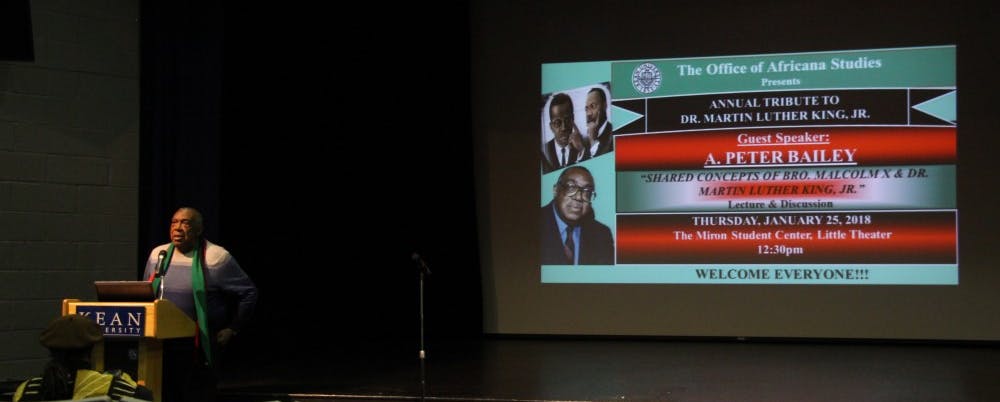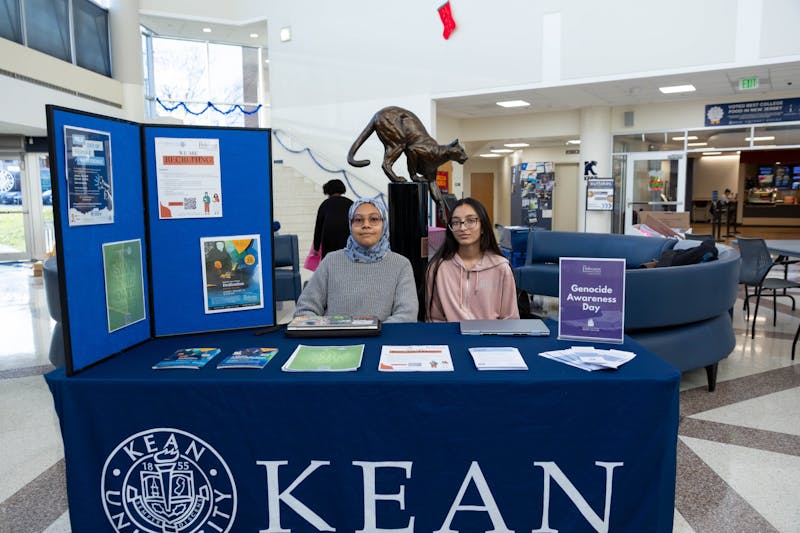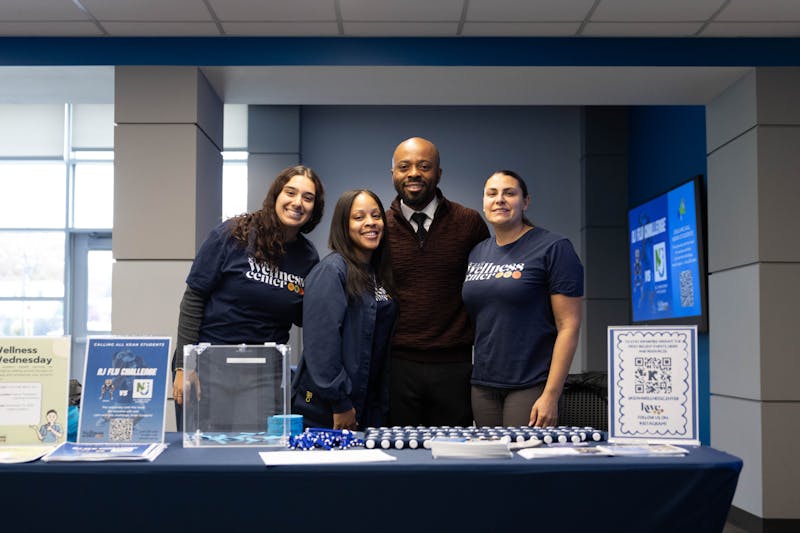On Jan. 25, 2017 Malcolm X associate, A. Peter Bailey, gave an insightful presentation discussing the similarities between Malcolm X and Martin Luther King Jr. at the Miron Student Center Little Theater.
Bailey is a journalist, author, and lecturer. He also helped establish The Organization of Afro-American Unity (OAAU) with Malcolm X. Bailey was a close colleague of Malcolm X and was even one of the last people who spoke to Malcolm X on the day of his assassination on Feb. 21, 1965. He later served as a pallbearer at Macolm X's funeral. He has since written and lectured throughout the country about Malcolm X and has made notable contributions to the Civil Rights Movement and its collection of writings.
Bailey was invited to speak at Kean University by the Office of Africana Studies. Bailey's goal in his lecture was to educate the masses about the other sides of Civil Rights leaders, Malcolm X and King, who are not popularized by the media or school textbooks.
The presentation began through the introductions of the Office of Africana Studies's director, James Conyers, Ph.D., who is a close friend of Bailey. He explained Bailey's many accomplishments and credibility toward the subject before giving him the stage.
Bailey first addressed the audience saying, "To the young people--you all hear about the King that you celebrate and talk about, but it is all just a small part of who he was. But I have new information today."
He then proceeded to criticize the reduction of King's character as pertaining only to his "I Have a Dream" speech, which was spoken at the March on Washington in 1963. Bailey emphasized that King had spoken more remarkable things on that day. He notes that this can be verified by the Washington Post's documentations that King's speech had prompted the FBI to launch its biggest surveillance operation in history in preparation for any mass uproar that may result from his speeches.
Bailey went on to explain his own position about King during when King was still alive. At the time, Bailey was in his mid 20's and labeled himself a "Malcolmite." Bailey admitted that he and other Malcolmites had believed that if you supported Malcolm X, you could not support King or vice versa. It took Bailey a couple years of reading and thinking to come to realize the many similarities the two national leaders had. He notes that Malcolm X had actually gone to Selma to support the previously imprisoned King. Because Malcolm X was a significant figure, his presence made authorities more hesitant about killing King.
Malcolm X also gave a riveting speech that, to the surprise of many, talked about topics more typically attributed to King rather than the call to violence that Malcolm X is often stereotyped as advocating. Bailey notes how one 14-year-old girl, who had marched on Bloody Sunday, was disappointed that the aggressive Malcolm X she had thought to exist had not shown through in the speech.
"I say this to show Malcolm X's influence is outside the impact of what you all hear about him. He had a relationship with Martin Luther King Jr. Now, I'm not saying they were 'homeboys' or 'bff's,' but I do believe they had a relationship because they both had a commitment to the cause. With this commitment, they would've found some type of way to work together," Bailey clarified.
According to Bailey, one man who knew of this relationship and feared it was John Edgar Hoover who was the first Director of the FBI. Bailey exemplified this by sharing a quote by Hoover to the then Senator Lyndon B. Johnson which said, "We wouldn't have any problem if we could get those two guys fighting, if we could get them to kill one another off..." Bailey explained that the fear of a potential relationship between Malcolm X and King is due to the fact that the two could've and would've surely eventually come together to create a serious national movement. In fact, both Malcolm X and King had written correspondents to one another about uniting in each other's rallies at separate points in time. Unfortunately, neither of the letters Bailey discussed were responded to by the rival party.
Still, Bailey went on to remark about the similar thoughts between the two national leaders. He quoted parts of speeches from King that addressed issues in a surprisingly way that aligned with Malcolm X's ideologies. In the same fashion, he unveiled Malcolm X quotes that shared the same ideologies as King. Bailey told many quotes in order to emphasize the other sides of both Malcolm X and King and the commonalities shared that are not popularly known by the masses.
Bailey hinted that these commonalities between King and Malcolm X caused the government to fear a unity, prompting the eventual assassination of both national leaders, as well as the distortion of both of their characters over time. Bailey then ended his presentation reminding the audience to continue their exploration into the true characters of MLK and Malcolm X and to commemorate their true selves in their upcoming birthdays and assassination days.
Bailey's insightful presentation lead to many questions during the post presentation Question and Answer segment. Most of the questions pertained to where more information about the characters of King and Malcolm X could be found. It was obvious by the audience's thirst for more knowledge that there is still more to learn about the subject.







